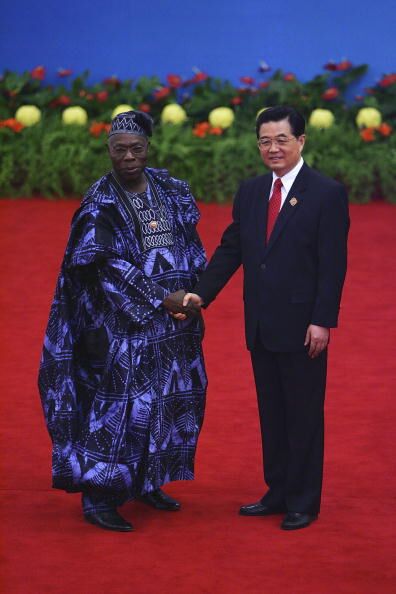
China Launches Satellite for Nigeria
In mid-May, China launched a $300 million communications satellite for Nigeria. The deal illustrates perfectly how China is establishing itself as a space benefactor to the developing world, making outer space another arena in which it is spreading its influence.
The concept of “soft power”—originally defined as shaping the preference of others through non-military and non-economic means—was coined in 1990 by neo-liberal Harvard professor Joseph Nye. However, this term has been applied in a broader sense to Chinese foreign policy, economic policy and public diplomacy toward other countries, particularly those with valuable resources. For example, China provides Africa with economic and financial assistance and builds roads, hospitals and airports on the continent, and in return, Africa is happy to sell oil and other commodities to China.
Now the Chinese are taking this same concept into space. China recently signed a satellite contract with major oil supplier Venezuela, organized a satellite association in Asia, and is developing an Earth observation satellite system with Bangladesh, Indonesia, Iran, Mongolia, Pakistan, Peru and Thailand. While some of the Asian countries might not have much to offer by way of resources, this “soft power” policy helps establish China’s dominance in Asia.
Shen Dingli, a professor in international relations at Fudan University in Shanghai, said, “China is starting to market and sell this technology to developing countries that need it” (New York Times, May 24). Regarding the Nigerian deal, Shen added, “It gives substance to Sino-African relations. Not only does China buy raw materials, but also we sell some things.”
Joan Johnson-Freese, chairwoman of the Department of National Security Studies at the U.S. Naval War College, said that although China trailed major aerospace companies in quality, its strategy was working on multiple levels. In an interview earlier this year, Johnson-Freese said, “They want to play a leadership role for developing countries that want to get into space,” and that China is “making political connections [which] helps them with oil deals.”
In the Nigerian deal, Chinese engineers designed and constructed a geostationary communications satellite called the Nigcomstat-1. Great Wall Industry Corporation, a state-owned aerospace company, will monitor the satellite from China and also train Nigerian engineers to operate a tracking station in Nigeria. To help pay for the satellite, the state-owned Export-Import Bank of China loaned Nigeria $200 million in preferential buyer’s credits.
China is using its space program to enhance national prestige and advance its technological developments. This is exactly what the United States has been working hard to curb for over a decade, implementing export restrictions that prohibit U.S. technology from being used on satellites launched in China.
The U.S. is especially wary over the fact that most of China’s satellites are “dual use” technologies—that is, capable of both civilian and military applications. China is overhauling its military, modernizing its fighting forces, and developing the capability to fight a high-tech war. Just this past January, China launched a missile into space, successfully destroying one of its own orbiting satellites, alarming most Western countries.
Watch China to continue to exercise more “soft power” within Asia and other developing countries and, in turn, to curb U.S. influence in the rest of the world. Read Russia and China in Prophecy to see why.
